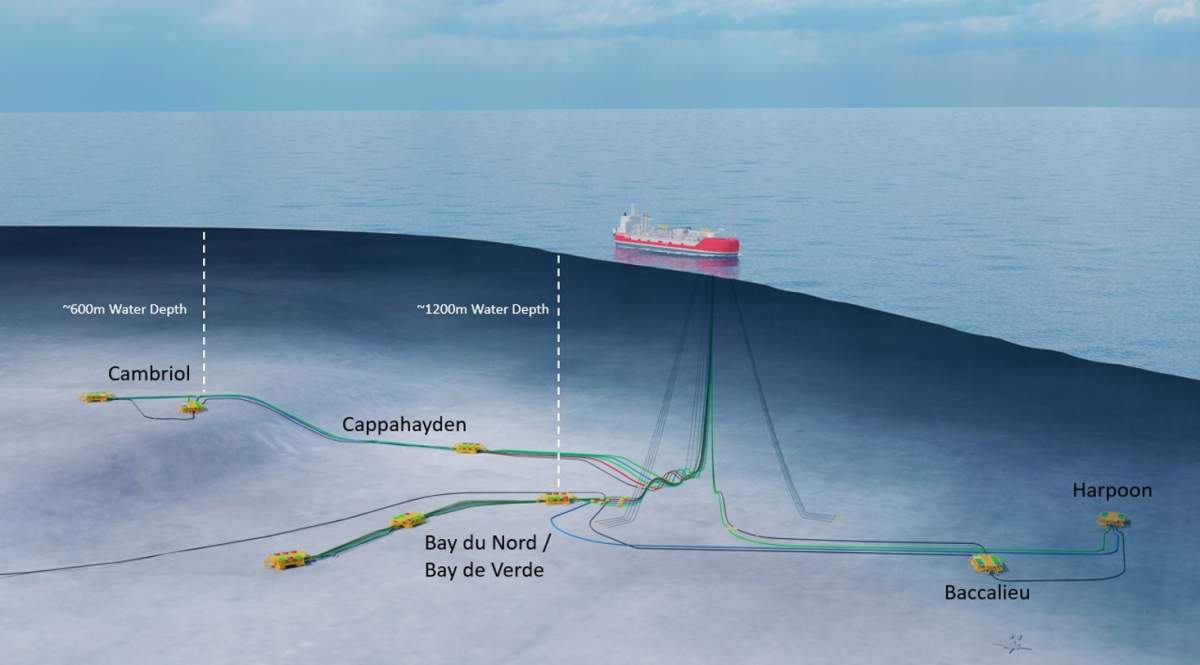There’s growing intrigue over a deepwater oilfield off Newfoundland and Labrador.

The Bay du Nord project would be the first deepwater (1,170 metres) development in the province’s offshore area.
The oilfield is in the Flemish Pass, about 500 kilometres east of St. John’s. Its developer, Norway-based Equinor, says Bay du Nord will cost a staggering $16 billion to develop, but would produce an estimated 500 million barrels over several decades. Equinor says it would create the equivalent of 16,000 jobs.
In April, the federal government gave environmental approval to the project. The decision has given rise to growing questions about whether the federal and provincial Liberal governments — which both brand themselves as climate-change warriors — are trying to move in opposite directions, at the same time.
“Canada’s absolutely trying to do two things at one time,” said Lori Lee Oates, an instructor with Memorial University.
Oates said it’s time for a clean break from fossil fuel industries.
“This trying to walk the environment/industry divide is highly problematic, and, it’s burning the planet. It makes Canada a bad actor on climate change on the international stage.”

Public opinion surveys suggest residents in Newfoundland and Labrador are strongly in favour of the project.

Get daily National news
Energy NL, the organization formerly known as the Newfoundland and Labrador Oil and Gas Industries Association, said higher oil prices and new drilling have boosted the province’s offshore prospects.
“You will see this harbour much busier when Bay du Nord comes on,” said Charlene Johnson chief executive of Energy NL CEO. “You’ll see the skies busier with helicopters, the restaurants, the stores downtown.”
A coalition of environmental groups is suing the federal government.
Ecojustice, an environmental law charity, filed the lawsuit, claiming Environment Minister Stephen Guilbeault dropped the ball.
“It’s our position that downstream greenhouse gas emissions are one such effect he has to consider when he makes that decision,” said Ian Miron, Ecojustice lawyer. “And in this case, he didn’t do that. He didn’t look at those effects.”
In a statement to Global News, the government’s Impact Assessment Agency, which conducted the Bay du Nord environmental assessment, said it was “rigorous and thorough.” The agency said the project will be subject to the strongest greenhouse gas conditions ever in Canada, and, emissions will be far below average.
Politically, Bay du Nord is a sensitive topic. Global News made repeated attempts to arrange an interview with Newfoundland and Labrador Premier Andrew Furey, but, Furey was not made available.
During a photo opportunity about child-care in St. John’s, last month, the prime minister insisted there’s no contradiction.
“What we’re seeing around the world is a need to transform our energy mix, to remove the carbon emissions from it. And that’s the direction we’re going in, not backwards.”
Bay du Nord is not a done deal. Equinor has other offshore options to consider, in various parts of the world.
And, with estimates for the oilfield’s riches increasing from original indications, the provincial government wants to discuss with the company how much money would flow into the financially strapped province.
“The scope has increased,” provincial energy minister Andrew Parsons told Global News. “We feel that our take should increase. Our people should benefit from it. It’s our resource.”
Equinor told Global News it anticipates making a final decision within the next couple of years, with production planned by the end of the decade.
- Attack on Iran triggers global flight disruptions, impacts Canadian travellers
- Queen’s University students stranded in Doha after Iran attack shuts down airspace
- WWE Hall of Fame ring belonging to wrestling legend recovered after stolen
- Quebec politician praised for speaking openly about menopause symptom in legislature









Comments
Want to discuss? Please read our Commenting Policy first.